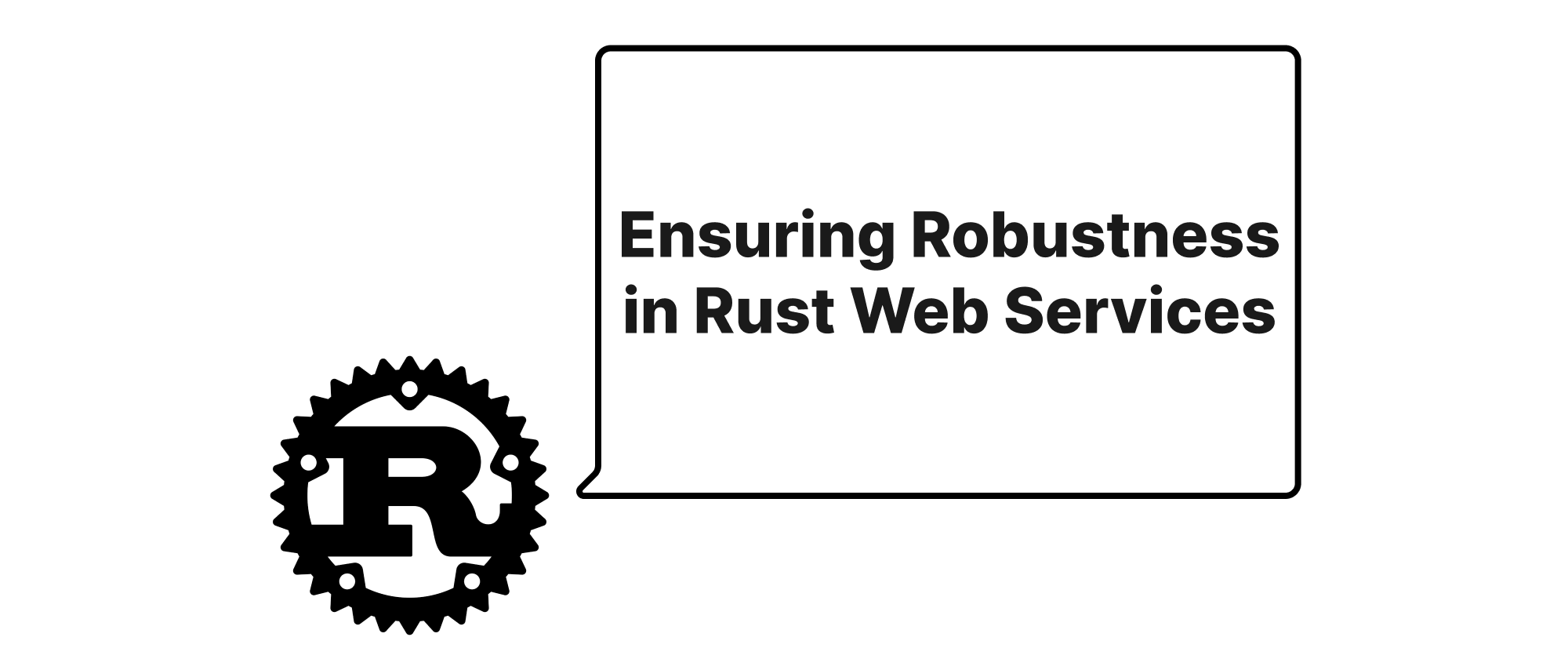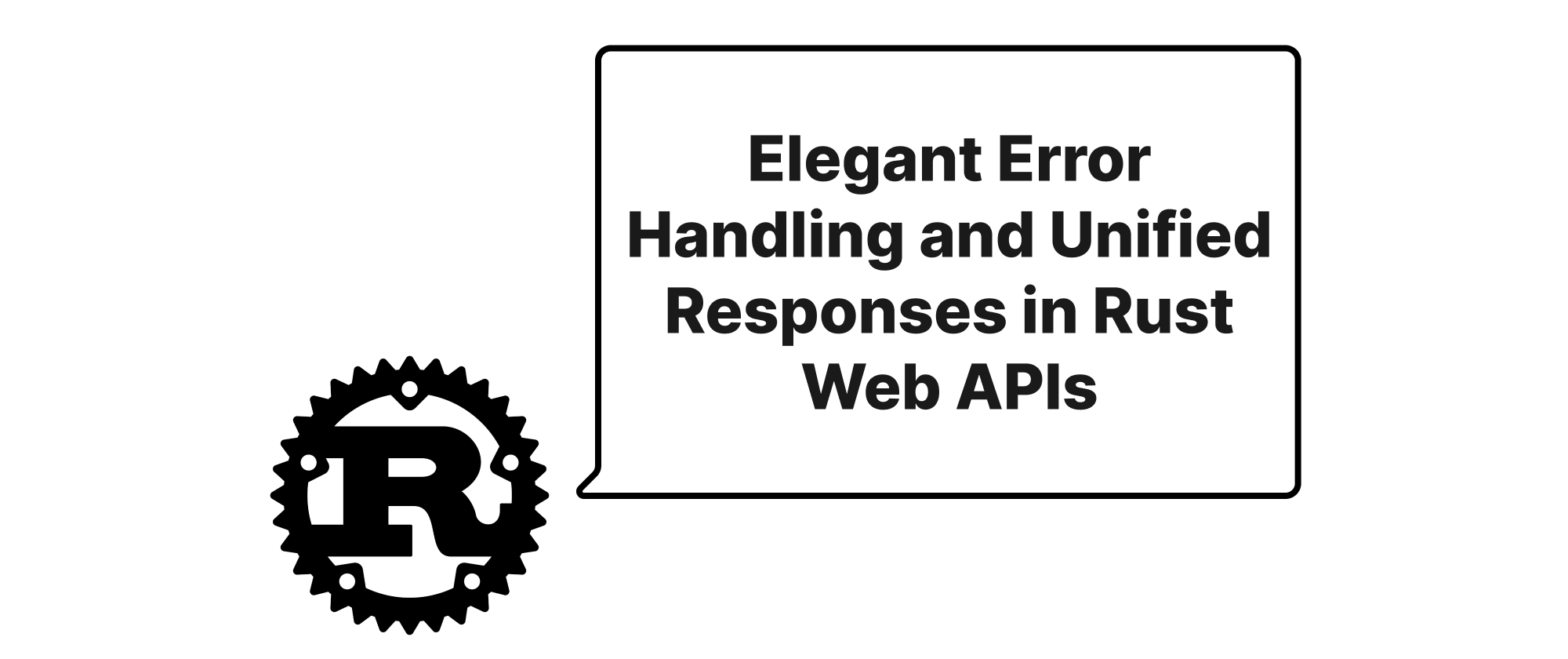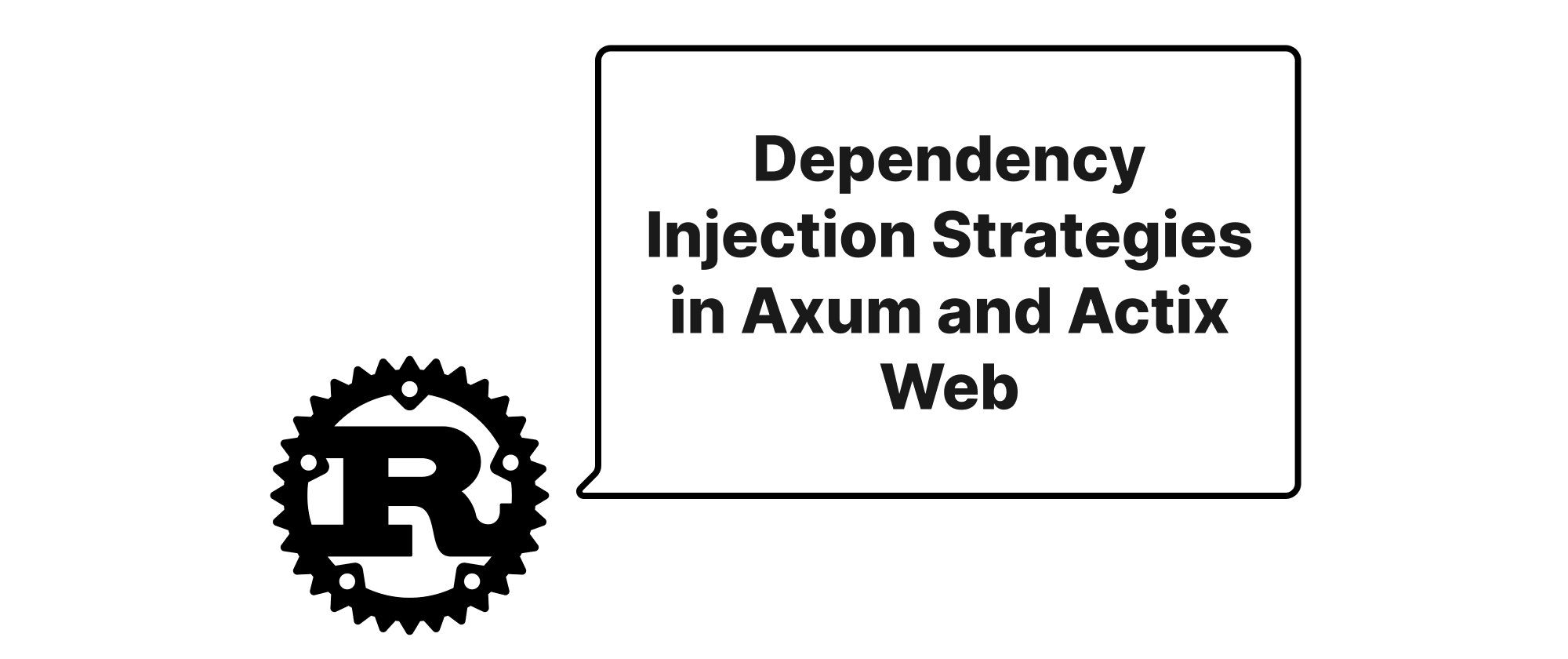Ensuring Robustness in Rust Web Services: Type-Safe Request Body Parsing and Validation with Serde and Validator
Ethan Miller
Product Engineer · Leapcell

Introduction
In the world of web service development, handling incoming request bodies is a critical task. Incompletely or incorrectly processed data can lead to a myriad of issues, from subtle bugs and unexpected behavior to serious security vulnerabilities like injection attacks. Modern web applications demand not only efficient data handling but also robust validation mechanisms to ensure data integrity and application stability. Rust, with its strong type system and focus on memory safety, provides an excellent foundation for building highly reliable web services. However, simply using Rust isn't enough; developers must adopt best practices for data processing. This article dives into how two powerful Rust crates, serde and validator, can be seamlessly integrated to achieve type-safe request body parsing and comprehensive validation, thereby elevating the reliability and security of your web applications.
Decoupling Data Parsing and Validation for Robust Web Services
Before diving into the implementation details, let's briefly define the core concepts that underpin our solution.
- Request Body Parsing: This is the process of taking raw data, typically in a format like JSON or URL-encoded forms, from an incoming HTTP request and transforming it into structured data that your application can understand and work with. In Rust, this usually means deserializing the data into a Rust struct.
- Type Safety: A characteristic of a programming language, like Rust, that aims to prevent type errors. When applied to request body parsing, it means ensuring that the deserialized data strictly adheres to the defined Rust data types, catching mismatches at compile time rather than runtime.
- Data Validation: The process of ensuring that the parsed data meets specific criteria, rules, or constraints. This goes beyond basic type checking to enforce business logic, data format requirements (e.g., email patterns, string lengths), and value ranges.
serde: A powerful and popular Rust library for serializing and deserializing Rust data structures efficiently and generically. It supports various data formats, including JSON, YAML, and Bincode. For web services, itsserde_jsoncounterpart is particularly relevant for handling JSON request bodies.validator: A Rust crate that provides a declarative way to add validation rules to structs. It supports a wide range of built-in validators (e.g.,#[validate(email)],#[validate(range(min = 0, max = 100))],#[validate(length(min = 1))]) and also allows for custom validation logic.
The Problem with Manual Parsing and Validation
Without dedicated tools, parsing and validating request bodies often involves manual checks and error handling, which is repetitive, error-prone, and can quickly become a spaghetti of if-else statements.
// A naive and error-prone approach (pseudo-code) fn create_user_manual(request_body: String) -> Result<User, String> { // 1. Manually parse JSON let json_map: HashMap<String, Value> = parse_json_string(request_body)?; let username = json_map.get("username").and_then(|v| v.as_str()); let email = json_map.get("email").and_then(|v| v.as_str()); let age = json_map.get("age").and_then(|v| v.as_u64()); // 2. Manual validation if username.is_none() || username.unwrap().len() < 3 { return Err("Username too short".to_string()); } if email.is_none() || !is_valid_email(email.unwrap()) { return Err("Invalid email format".to_string()); } if age.is_none() || age.unwrap() < 18 { return Err("User must be adult".to_string()); } Ok(User { username: username.unwrap().to_string(), email: email.unwrap().to_string(), age: age.unwrap() as u32, }) }
This approach is verbose, difficult to maintain, and lacks the compile-time safety that Rust is known for.
The serde Solution for Type-Safe Parsing
serde simplifies the deserialization process significantly. You define a Rust struct that mirrors the expected structure of your request body, and serde handles the conversion automatically.
First, add serde and serde_json to your Cargo.toml:
[dependencies] serde = { version = "1.0", features = ["derive"] } serde_json = "1.0"
Now, define your request data structure:
use serde::Deserialize; #[derive(Debug, Deserialize)] struct CreateUserRequest { username: String, email: String, age: u32, } fn process_request_with_serde(json_data: &str) -> Result<CreateUserRequest, serde_json::Error> { let request: CreateUserRequest = serde_json::from_str(json_data)?; Ok(request) } fn main() { let valid_json = r#" { "username": "johndoe", "email": "john.doe@example.com", "age": 30 } "#; let invalid_json_type = r#" { "username": "janedoe", "email": "jane.doe@example.com", "age": "twenty five" } "#; match process_request_with_serde(valid_json) { Ok(req) => println!("Valid request parsed: {:?}", req), Err(e) => eprintln!("Error parsing valid JSON: {:?}", e), } match process_request_with_serde(invalid_json_type) { Ok(req) => println!("Invalid type request parsed: {:?}", req), Err(e) => eprintln!("Error parsing invalid type JSON: {:?}", e), } }
As seen in the main function, when age is provided as a string instead of a number, serde_json::from_str returns an error, gracefully handling type mismatches. This brings compile-time and runtime type safety to your request parsing.
Integrating validator for Comprehensive Data Validation
serde handles the structure and types of your data, but it doesn't enforce semantic rules or business logic. This is where validator comes into play.
Add validator to your Cargo.toml. You'll typically want the derive feature for convenience.
[dependencies] serde = { version = "1.0", features = ["derive"] } serde_json = "1.0" validator = { version = "0.18", features = ["derive"] }
Now, enhance your CreateUserRequest struct with validator attributes:
use serde::Deserialize; use validator::Validate; // Import the Validate trait #[derive(Debug, Deserialize, Validate)] // Add Validate derive macro struct CreateUserRequest { #[validate(length(min = 3, max = 20, message = "Username must be between 3 and 20 characters"))] username: String, #[validate(email(message = "Email must be a valid email address"))] email: String, #[validate(range(min = 18, message = "User must be at least 18 years old"))] age: u32, } fn process_request_with_validation(json_data: &str) -> Result<CreateUserRequest, Box<dyn std::error::Error>> { let request: CreateUserRequest = serde_json::from_str(json_data)?; request.validate()?; // Call the validate method Ok(request) } fn main() { let valid_user_json = r#" { "username": "johndoe", "email": "john.doe@example.com", "age": 30 } "#; let invalid_user_json_too_young = r#" { "username": "janedoe", "email": "jane.doe@example.com", "age": 16 } "#; let invalid_user_json_bad_email = r#" { "username": "peterp", "email": "peterp_at_example.com", "age": 25 } "#; println!("--- Processing Valid User ---"); match process_request_with_validation(valid_user_json) { Ok(req) => println!("Successfully processed: {:?}", req), Err(e) => eprintln!("Error: {:?}", e), } println!("\n--- Processing Too Young User ---"); match process_request_with_validation(invalid_user_json_too_young) { Ok(req) => println!("Successfully processed: {:?}", req), Err(e) => eprintln!("Validation Error: {:?}", e), } println!("\n--- Processing Bad Email User ---"); match process_request_with_validation(invalid_user_json_bad_email) { Ok(req) => println!("Successfully processed: {:?}", req), Err(e) => eprintln!("Validation Error: {:?}", e), } }
In this enhanced example:
- We add
#[derive(Validate)]to ourCreateUserRequeststruct. - We use
#[validate(...)]attributes on each field to specify validation rules.length(min = 3, max = 20)ensures the username is within a character limit.emailchecks for a standard email format.range(min = 18)ensures the age is at least 18.
- The
validate()method, provided by theValidatetrait, is called after deserialization. If any validation rule fails, it returns avalidator::ValidationErrorserror, which can then be structured and returned to the client as specific error messages.
Combining with Web Frameworks
This pattern integrates seamlessly with popular Rust web frameworks like Axum or Actix-web. These frameworks often provide extractors that automatically deserialize request bodies using serde and can be extended to validate using validator.
For Axum, you might create a custom extractor:
use axum::{ async_trait, extract::{rejection::JsonRejection, FromRequest, Request}, http::StatusCode, response::{IntoResponse, Response}, Json, }; use serde::de::DeserializeOwned; use validator::Validate; // Our custom extractor for validated JSON pub struct ValidatedJson<T>(pub T); #[async_trait] impl<T, S> FromRequest<S> for ValidatedJson<T> where T: DeserializeOwned + Validate, S: Send + Sync, Json<T>: FromRequest<S, Rejection = JsonRejection>, { type Rejection = ServerError; async fn from_request(req: Request, state: &S) -> Result<Self, Self::Rejection> { let Json(value) = Json::<T>::from_request(req, state).await?; value.validate()?; Ok(ValidatedJson(value)) } } // A custom error type to encapsulate validation and deserialization errors pub enum ServerError { JsonRejection(JsonRejection), ValidationError(validator::ValidationErrors), } impl IntoResponse for ServerError { fn into_response(self) -> Response { match self { ServerError::JsonRejection(rejection) => rejection.into_response(), ServerError::ValidationError(errors) => { let error_messages: Vec<String> = errors .field_errors() .into_iter() .flat_map(|(field, field_errors)| { field_errors.iter().map(move |err| { format!("{}: {}", field, err.message.as_ref().unwrap_or(&"Invalid".to_string())) }) }) .collect(); ( StatusCode::UNPROCESSABLE_ENTITY, Json(serde_json::json!({"errors": error_messages})), ) .into_response() } } } } // Example usage in an Axum handler (requires relevant Axum setup) #[axum::debug_handler] async fn create_user(ValidatedJson(payload): ValidatedJson<CreateUserRequest>) -> impl IntoResponse { // If we reach here, the payload is already deserialized and validated. println!("Received valid user creation request: {:?}", payload); (StatusCode::CREATED, Json(payload)) } // Ensure the CreateUserRequest is defined as before #[derive(Debug, Deserialize, Validate, serde::Serialize)] // Add Serialize for response struct CreateUserRequest { #[validate(length(min = 3, max = 20, message = "Username must be between 3 and 20 characters"))] username: String, #[validate(email(message = "Email must be a valid email address"))] email: String, #[validate(range(min = 18, message = "User must be at least 18 years old"))] age: u32, }
This ValidatedJson extractor ensures that any incoming JSON request body is first deserialized by serde and then validated by validator before it even reaches your application logic. This centralizes error handling and keeps your business logic clean.
Custom Validation Logic
Sometimes, built-in validators aren't enough. validator allows custom validation functions. For example, ensuring a username is unique might require checking a database.
use serde::Deserialize; use validator::{Validate, ValidationError, ValidationErrors}; // Custom validator function fn username_is_not_admin(username: &str) -> Result<(), ValidationError> { if username.to_lowercase() == "admin" { return Err(ValidationError::new("username_admin_reserved")); } Ok(()) } #[derive(Debug, Deserialize, Validate)] struct CreateUserRequestWithCustomValidation { #[validate( length(min = 3, max = 20, message = "Username must be between 3 and 20 characters"), custom = "username_is_not_admin" // Use custom validator )] username: String, #[validate(email(message = "Email must be a valid email address"))] email: String, #[validate(range(min = 18, message = "User must be at least 18 years old"))] age: u32, } fn main() { let admin_user_json = r#" { "username": "Admin", "email": "admin@example.com", "age": 40 } "#; println!("\n--- Processing Admin User ---"); let request: Result<CreateUserRequestWithCustomValidation, serde_json::Error> = serde_json::from_str(admin_user_json); if let Ok(req) = request { match req.validate() { Ok(_) => println!("Successfully processed: {:?}", req), Err(e) => { println!("Validation Error: {:?}", e); // Can inspect specific custom error if let Some(field_errors) = e.field_errors().get("username") { for error in field_errors { if error.code == "username_admin_reserved" { println!("Specific error: Username 'admin' is reserved."); } } } } } } else if let Err(e) = request { eprintln!("Deserialization Error: {:?}", e); } }
This demonstrates how validator is flexible enough to accommodate complex or domain-specific validation rules, making your data integrity checks as robust as your business logic requires.
Conclusion
The combination of serde for type-safe deserialization and validator for expressive data validation offers a powerful and elegant solution for handling request bodies in Rust web services. By leveraging these crates, developers can significantly reduce the amount of boilerplate code, improve code readability, and, most importantly, build more secure and reliable applications. This approach ensures that data entering your system is not only correctly structured but also adheres to all necessary business rules, safeguarding your application against invalid inputs and unforeseen errors from the very first interaction. Type safety and robust validation are non-negotiable pillars of well-architected web services in Rust.


